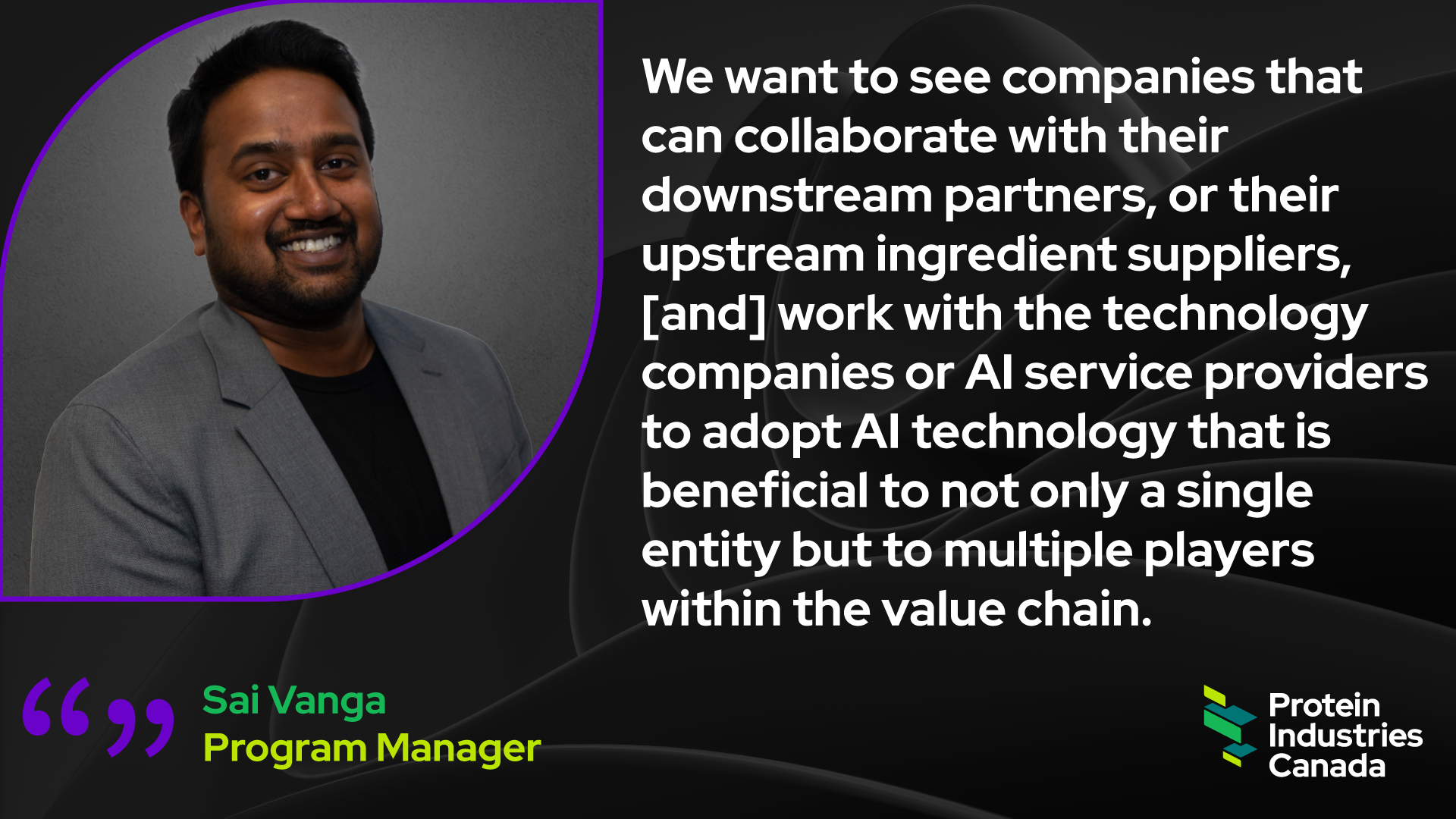First year of AI Program increases knowledge of and interest in technology’s potential
- Posted:

A program’s first year is like the first year of anything: It usually sees some success, while those running it learn how they can improve it moving forward. The projects team at Protein Industries Canada has found the organization’s Artificial Intelligence Program is no exception to this rule, having gained both traction and a better understanding of how to run the program moving forward.
Protein Industries Canada launched their Artificial Intelligence Program in September 2022, under the Government of Canada’s Pan-Canadian Artificial Intelligence Strategy (PCAIS). Since then, a steady flow of companies across Canada and across the plant-based value chain have expressed interest in the program, leaving Protein Industries Canada staff with a portfolio of potential projects to assess.
“We have seen a lot of interest from the pre-harvest, or the primary ag companies, but I think the intake from our end processors and CPG companies has been a bit slower,” Protein Industries Canada Program Manager Sai Vanga said. “There are companies that are still going through that learning curve of knowing how AI would actually impact their business and are developing some strategy around how they can include AI to achieve better outcomes in terms of efficiency or products or services they offer.”
Addressing this slower uptake in the food space is crucial not only for the program, but also for growth of the plant protein ingredient and food sector. The increased adoption of AI and machine learning technology can help make the sector more sustainable, while also optimizing everything from ingredient and recipe formulation, to food safety and quality assurance.
To help increase the adoption of AI across the full value chain, Protein Industries Canada launched a call for food-focused projects in July 2023. Vanga said it’s helped to an extent, but the organization is hoping more companies bring food and ingredients projects forward—and they’d like to see the value chain come together within them.
“We want to see companies that can collaborate with their downstream partners, or their upstream ingredient suppliers,” Vanga said. “Then at the same time work with the technology companies or AI service providers to adopt AI technology that is beneficial to not only a single entity but to multiple players within the value chain. So the ideal outcome for a project would be where the collaboration is not only happening between the agrifood company and the tech company, but also multiple points within the value chain that actually benefit from adopting AI.”
For those companies who have an idea of how they may want to incorporate AI into their work, but aren’t quite sure how to go about it, Protein Industries Canada has a solution: the Data Readiness Improvement Program (DRIP). Under DRIP, companies can take part in virtual training that helps them better understand the problem they’re hoping AI will solve, whether AI is the proper solution, and how to collect and utilize the data they need for their AI technology.
With the next DRIP cohort launching in early 2024, Vanga recommends interested companies reach out regarding potential registration soon. They can do so by checking out the DRIP information page.
In the meantime, Vanga encourages companies with an AI project idea to think about how they can work with others—and within the parameters of the Protein Industries Canada Artificial Intelligence Program—to make it a reality.
“AI is pretty new for Protein Industries Canada. Though we funded some of the projects in our previous fund, this is pretty focused funding for the commercialization of AI within the agricultural sector, more specifically plant-based protein sector,” he said.
For more information about the Artificial Intelligence Program, including eligibility and how to apply, please visit the program overview page.
